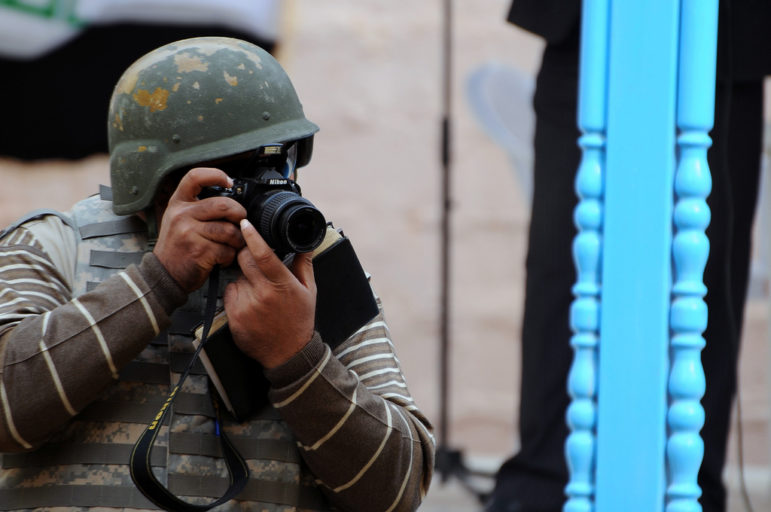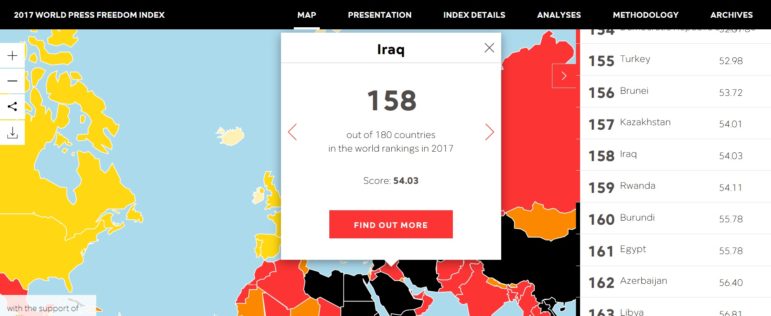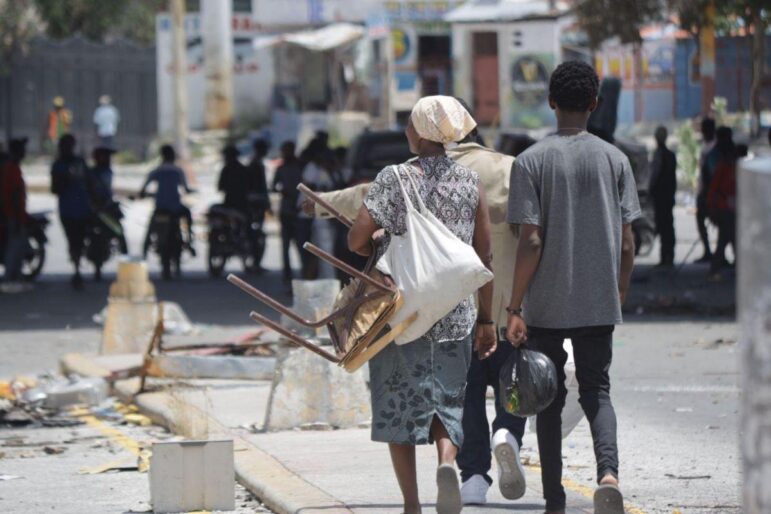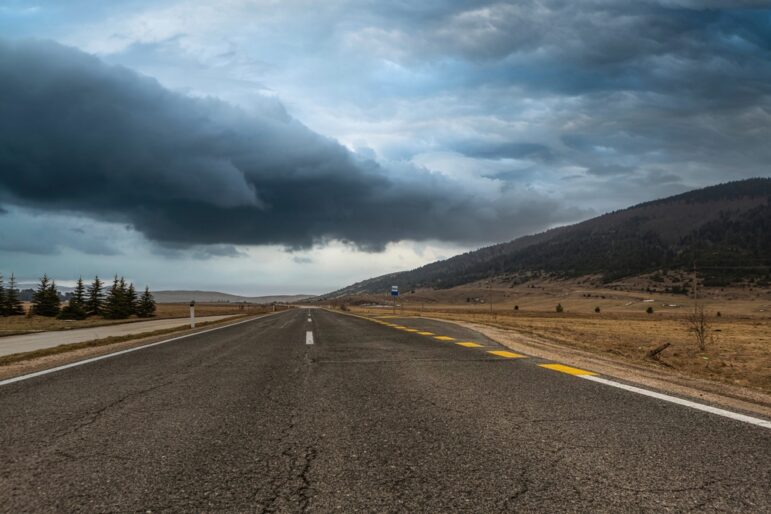

An Iraqi photo-journalist takes a photograph of local dignitaries watching the on stage entertainment during the grand opening for the district advisory council hall for the Rusafa political district itn Muhallah 505,Idrissi, eastern Baghdad, on Nov. 20th, 2008. (U.S. Army photo by Staff Sgt. James Selesnick/Not Reviewed)
Iraqi Muckraking: Investigative Journalism in One of the World’s Most Dangerous Countries
Newspapers in Iraq are commissioning investigative journalism in a bid to attract and retain audiences who might otherwise turn to local digital news platforms. But the cost of investigative projects, a lack of access to information, and curbs on freedom of the press have hindered its development in the country.
Dr Bushra Al-Hamdani, an Iraqi university professor, found in her study “The Obstacles of Investigative Journalism in Iraq from the Point of View of Iraqi Journalists” that the country’s legacy media organizations currently fund occasional investigative projects, but have been deterred from investing more.
Al-Hamdani spoke to 25 journalists from four of the country’s leading national newspapers, Zaman, Mada, Assabah and Mashrek, as well as the Baghdad-based Network of Iraqi Reporters for Investigative Journalism (NIRIJ), which promotes investigative journalism locally.
Al-Hamdani’s research has highlighted the challenges faced by Iraq’s investigative reporters. These include the considerable risks of working in a country beset by religious and sectarian warfare. Journalists are often targeted by either pro-government militias or militant opposition groups and have little protection against threats. They also face legal obstacles and a lack of government transparency, the study found.
Iraq is ranked 158 of 180 countries in the World Press Freedom Index, published annually by Reporters Without Borders.
Low Wages, Few Resources
A lack of transparency of government sources was the problem cited by most (80 percent) respondents. The majority also reported a lack of financial resources to conduct investigative work, especially to buy electronic devices, such as recording tools. Indeed, only one-fifth of journalists interviewed said they had equipment required to carry out their investigative work.
One of the most serious challenges to development of investigative journalism identified by the study was how journalists, who usually receive low wages, could be protected from the temptations of corruption.
Attitudes within their own organization were also cited. More than half (60 percent) of investigative journalists said they felt undervalued by their own media organization. In fact, only 12 percent of respondents confirmed that the culture of investigative journalism existed in their workplace.
Focus on Training
Although continuing education is considered an important part of a journalist’s career, few courses are offered in this complex journalistic genre. Only 12 percent of those interviewed confirmed they had done courses, which were conducted by international organizations.
Efforts have been made to make training available, and more are planned. In 2016, two universities in Baghdad launched MA courses in investigative journalism, and universities in Sulaymaniyah and Dohuk were helped by the Copenhagen-based International Media Support (IMS) organization (a GIJN member), which has been working in this area for six years.
 Osama Al Habahbeh, IMS Iraq program manager, explained: “IMS has facilitated opening investigative journalism units, while NIRIJ trainers are providing training to both teachers and students.”
Osama Al Habahbeh, IMS Iraq program manager, explained: “IMS has facilitated opening investigative journalism units, while NIRIJ trainers are providing training to both teachers and students.”
These courses have already made an impact. According to Rebaz Mohammed, IMS program coordinator based in Iraq, work by NIRIJ has attracted press coverage and attention from government agencies, with one investigation into the use of expired medications leading to court proceedings and compensation for victims.
Among other topics investigated by Iraqi media have been the waste of public funds, lack of justice, failures of public officials and the principle of accountability. A recent NIRIJ investigation entitled ISIS’s Real Estate Empire delved into the mysterious disappearance of thousands of property deeds in Mosul.
Although Al-Hamdani’s research is limited to Iraqi journalism, other Arab countries face similar issues. The majority of Arab countries do not yet have laws that protect investigative journalists, such as a right of access to information or protection of source confidentiality.
The results of this research were presented at a media conference last year held by the Faculty of Information of the Iraqi University, Baghdad, in partnership with the NIRIJ.
This post first appeared on the European Journalism Observatory website and is cross-posted here with permission.
 Nouha Belaid is a research fellow at University of Ottawa in Canada, the Arab Journalism Observatory’s web editor, and a PhD candidate at the Press Institute and Science Information in Tunisia. She has worked as a journalist for Tunisian newspapers and as a communication consultant.
Nouha Belaid is a research fellow at University of Ottawa in Canada, the Arab Journalism Observatory’s web editor, and a PhD candidate at the Press Institute and Science Information in Tunisia. She has worked as a journalist for Tunisian newspapers and as a communication consultant.










